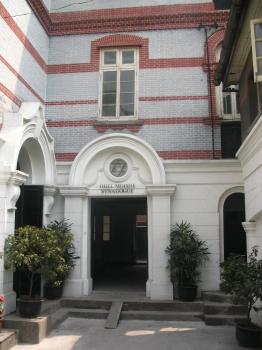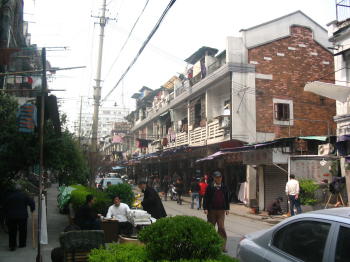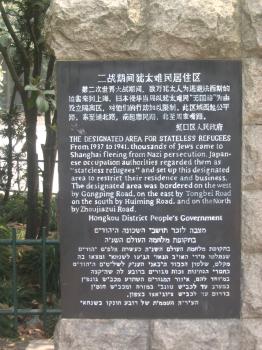We are developing the social individualist meta-context for the future. From the very serious to the extremely frivolous... lets see what is on the mind of the Samizdata people.
Samizdata, derived from Samizdat /n. - a system of clandestine publication of banned literature in the USSR [Russ.,= self-publishing house]
|
Where the people of Malaysia would be without their government to do their thinking for them, I really do not know.
Malaysian authorities have published a list of undesirable titles to prevent parents giving their children names such as Hitler, smelly dog or 007.
It is a classic ‘Samizdata’ story which allows us to make fun of the silly politicians but behind it is the serious point that the Malaysian government is arrogating for itself the right to have a say in what a citizen calls him or herself. A person’s name is at the heart of their identity in many ways, and it is sad that governments think they have the right to interfere with whatever name a person chooses to call themselves.
One of my favourite blogs just now is China Law Blog. Its writers are very pro-freedom and pro-capitalist, and are optimistic about the future progress of China, both economically and politically, despite all the present miseries, muddles and horrors.
A recent post there by Dan Harris is about the relationship between the rise of capitalism in China, and corruption. The cliché is that the former causes the latter, by providing the money for it. The price of politicians in China is being driven up by the increased amounts of money now available to pay for them. Ergo, there is more corruption in China now, because there must be. Besides, better to blame corruption on the evil capitalist buyers of politicians than on the sellers, the corrupt politicians themselves.
But the picture Harris paints, helped by a recent World Bank study, written about by one of its authors in Newsweek, is that corruption, which was already a well-established fact in China well before capitalism got into its recent stride there, inhibits capitalism. However, once relatively uncorrupt, relatively uninhibited capitalism gets established and starts to spread, well, it spreads, and with it spreads the habit and the idea of non-corruption.
The deeply corrupt and long established industrial cities, with their big state-owned enterprises, have remained corrupt, and have stagnated. The new industrial cities, many of them near to the coast, had pretty much no industry a generation ago, and hence no old industry to protect with corrupt and discriminatory measures against new enterprises. In these newly erupting cities, corruption is not nearly so great. That is why they are erupting. The claim that capitalism causes corruption is wrong. Lack of corruption causes capitalism, and capitalism diminishes corruption by rewarding its absence.
Coastal cities. Lots of new industry. Openness to global ideas and influences. Sounds familiar, does it not? It is as if those Four Tigers are now raising a mass of tiger cubs on the mainland, and I bet you that lots of the exact same people who made the first tigers are now deeply involved in raising the new litter.
China, viewed from a distance, through blog postings and news stories, now seems very Victorian British to me. Yes there is a universe of Dickensian misery, but there is also a rising commercial class and a rising puritanical zeal for honesty, first established by those who do trade and by those who see the point of trade, but now, it would seem, starting to infect political activity. Meanwhile, democracy advances, step by little cautious step, just as it did in Victorian Britain. At present, the big deal is that they are allowing elections for Communist Party posts, and expanding the Communist Party. Sort of like how the Victorian aristocracy of Britain co-opted the new capitalists, and also became much more productive sorts of capitalists themselves. For more about this process, see this article.
Others, equally devoted to the spread of the free market (they would say more so), like these guys have a much gloomier view of modern Chinese development. The fat cats of state capitalism have merely found a new way to skim off the cream. They have a point. Like Victorian Britain, China now is a harsh and unfair place, unless you are one of the lucky ones who is working hard and is being rewarded.
To switch metaphors from cats to cookery, at least now in China, amidst all the broken eggs, there is the beginning of a seriously tasty omelette to be seen sizzling in the frying pan. A few decades ago, all they had to show for their broken eggs was broken eggs.
I am delighted that Google seems to be having second thoughts about collaborating with repression by the Chinese state. I realise that it is not easy for a company to walk away from a huge market but if Google does decide to stop aiding and abetting of a vile regime in a very direct manner, they are to be commended fo their change of heart.
Chinese Taipai, or Taiwan, or the Republic of China; whatever you call it, you have to admit that the small electronic island has some of the best legislators in the world.
Not because they are particularly wise or sensible, but rather, they are perhaps the best exponents of the ‘scrummage’ school of legislative thought. The proceedings of the Parliament there are frequently punctuated by brawls, biffs, and other exciting interruptions.
And they have been at it again:
Pandemonium broke out in Taiwan’s parliament when deputies attacked a woman colleague for snatching and trying to eat a proposal on opening direct transport links with China in a bid to stop a vote on the issue. Lawmakers of the ruling Democratic Progressive Party charged towards the podium and protested noisily to prevent the review of an opposition proposal seeking an end to decades-old curbs on direct air and shipping links with China.
Amid the chaos, DPP deputy Wang Shu-hui snatched the written proposal from an opposition legislator and shoved it into her mouth, television news footage showed. Wang later spat out the document and tore it up after opposition lawmakers failed to get her to cough it up by pulling her hair. During the melee, another DPP woman legislator, Chuang Ho-tzu, spat at an opposition colleague.
“She spat saliva,” yelled Hung Hsiu-chu of the main opposition Nationalist Party.
In Australia, although there is plenty of legislation going about, I fear it has almost zero nutritional value. However, I applaud Ms Wang Shu-Hui’s novel approach to legislation and I think it should be adopted in legislatures throughout the world.
Techdirt points to a story in the Toronto Star about three Canadian hackers who have created a software work-around for China’s ‘great firewall’. The subtle irony is that the hackers’ solution, called Psiphon, is inherently cooperative:
Psiphon takes the concept of a third-party computer doing the work yours can’t because of censorship, and protects it by relying on trusted friends and close family, to create a program the creators say is nearly fail-safe.
One has to love the idea of the failure of the enforced, monolithic collective inspiring genuine, entrepreneurial cooperation.
The fact, as Techdirt points out, that three hackers are able to out-perform a cast of 30,000 censors also suggests another truth: that freedom is always cheaper and more efficient than oppression.
Most folks on holiday like to unwind, relax, and take it easy. This means that tourists are not always the global community’s best behaved citizens. Now, as China increasingly enters the mainstream community of nations, Beijing is worried about the behavior of Chinese abroad.
Chinese tourists have been told by their government to watch their manners on holiday, as behaviour that “merely disgusts” at home might not be tolerated abroad.
Spitting, slurping food and skipping queues are the kind of “bad social graces” some Chinese tourists display while on holiday, the state-run Xinhua news agency said.
“The increasing number of Chinese tourists travelling abroad may be a huge new source of income to destination countries, but that won’t prevent complaints against individuals from reflecting badly on all of China,” the report said.
I much prefer social pressures then state ones to stamp out anti-social behaviour. The more Chinese people see of the world, the less they are likely to indulge in anti-social behaviour. I must confess the sooner people anywhere give up spitting (and chewing gum), the happier I will be, however.
John Mearsheimer is a Professor at the University of Chicago who has attracted a great deal of attention in the blogosphere recently for a paper he co-authored about the role of the Israeli lobby and its influence on the policy of the United States towards the middle-east region. I think it fair to say that, at the very least, the paper was not his finest hour.
But it attracted me towards some of his other work, and the estimable Winterspeak, posting at Jane Galt’s blog, recently went to a speech where he outlined some of his views on his theory of international relations. Winterspeak was not entirely convinced.
Of course, political science is even more of a ‘black art’ then economic science. A scientific theory in the natural world can be demonstrated or refuted by scientific verification. In the social ‘sciences’ such verification is much harder. Therefore, making predictions about the future is hard. But one I still a worthwhile exercise. Readers can judge for themselves.
One of the aspects of Professor Mearsheimer’s work that has drawn particular attention is his view that the internal composition of states does not matter, democracy or dictatorship, theocracy or monarchy, they will have the same foreign policy goals. Given that in the United States, democracy is seen as a sacred cow, this is bound to be a provocative stance.
In considering this point of view, it may be helpful to make a distinction between ‘strategic’ foreign policy thinking, and ‘tactical’ foreign policy thinking, just as a chess-player does. Strategic is ‘this is what we want’ and tactical is ‘this is how we are going to get it’. If you view Professor Mearsheimer’s work in that light, I understand why he thinks that way. Take, for example, his recent debate with Zbigniew Brzezinski on the future of China’s policy. It seems to me that the internal composition of China’s government will not make a great deal of difference towards China’s desire to regain Taiwan.
It does of course make a great deal of difference about how they go about getting it, though. I am not very knowledgeable about China or its people, so I am not at all sure about how a future Chinese democracy would go about trying to reclaim Taiwan from the mainland. It may be thought that a democratic Chinese government would be sensible enough to eschew war, but given what the Chinese people seem to think about their neighbours, and watching other Asian democracies in action, gives me reason to doubt the good sense of a Chinese democracy.
It does seem to me that the tactics a state employs though are extremely important, and have massive and wide-ranging implications. Therefore, if one may be critical of Professor Mearsheimer’s theory, it is that he under-rates the importance of tactical moves in foreign policy goal setting. The classic example of this would be the transformation of Prussia into Imperial Germany in the late 19th century, and its effects on France and Russia. A more contemporary one, and more pointed given his latest academic effort, is that vital one of United States support for Israel. This policy is effected precisely because the United States is a democracy and, like it or not, the American public opinion is far more favourable towards Israel. This expression of American opinion thus translates into a massively different policy position towards the Middle East then would be the case if United States foreign policy was principally conducted with the interest of the government only in mind, as would be the case if the United States was a dictatorship.
And that support has a huge bearing on the foreign policy strategies of Arab states. So in the long run, democracy matters.
That does not mean that a democracy is likely to pursue more sensible or rational foreign policies. Democracy is no guarantee of good government. It simply means that governments in democracies have different political considerations to bear in mind when they make diplomatic decisions. I would welcome readers views on this matter.
Nation-states consider the most unlikely trophies to be the heartblood of their culture. Here is the latest example of idiots wasting time and taxpayers money:
The Japanese could hardly have dreamed up a more horrifying way of thoroughly annoying the Koreans.
“We will never consider suspending our efforts for international certification of Korean names for 18 undersea features in the East Sea,” said Song Min Soon, national security adviser to Roh. “The naming issue cannot be linked to Japan’s waterway survey scheme.”
Song got down to basics.
“We don’t need a complicated argument,” he said. “Simply speaking, we’ll never permit Japan’s maritime survey out of our steadfast determination to protect our territorial islets and waters.”
Protect those territorial inlets and underwater features now!

In the years following the First Opium War and the (forced) Treaty of Nanking in 1842, and the consequent establishment of Shanghai as a treaty port, areas of Shanghai were conceded to the Britain, the United States, and France between 1846 and 1849. Extraterritoriality applied, and foreigners were not subject to Chinese law. The French Concession (which never contained all that many French people – there were actually more Russians) was ruled essentially as a French colony – officials were appointed in Paris to adminster it. On the other hand, the British and American concessions were merged in 1863 to form something called the “International Settlement”, which elected the “Shanghai Municipal Council” to govern the city. On this basis, Shanghai was close to being an independent city state (albeit with some use of the Brtish and American legal systems and military) until the second world war.
This peculiar status still remained somewhat intact even after it was controlled by the Japanese from 1937 (who had started trading in Shanghai along with the Europeans in the first half of the twentieth century, and had gradually taken control of the city and other parts of China by force), and as a consequence Shanghai was the only port in the world unconditionally open to Jewish refugees from Europe. By 1941 over twenty thousand mostly German and Austrian but also Polish and Lithuanian Jews had arrived in Shanghai, creating a new Jewish area in the Hongkou area of Shanghai, which had once been the American concession but in the 1920s and 1930s was a predominantly Chinese area of the International Settlement. As I wrote last month, I went for a wander around this area when I was in Shanghai last month.

The Japanese had nothing against Jews (Japanese brutality being largely reserved for the Chinese), and the Jews in this area built what of a community they could, including the Ohel Moishe Synagogue, schools, theatre and newspapers, and they received some aid from the existing (very weallthy) Jewish community in Shanghai and from (largely American) Jewish philanthropic organisations. If you look very carefully, you can still see one or two handwritten signs which date from that era.

After 1941, partly under pressure from their new German allies, the Japanese confined the “stateless refugees” in Shanghai to one relatively small area of Hongkow. Conditions in this “Shanghai Ghetto” were not good, and the area was somewhat disease ridden. In 1945, thirty odd Jews were killed by an American bombing that was attempting to destroy a Japanese radio station.
But the vast majority of the Jews in Shanghai were still alive when the Americans liberated the city shortly afterwards. Joy at the arrival of the Americans was followed by news of the Holocaust and that virtually all Jewish friends and relatives back in Europe had been murdered, so it must have been a strange liberations. Over the next few years the Jews in Shanghai were dispersed to Australia, Hong Kong, Canada, the United States and Palestine, and relatively few were there when the communists took over in 1949.
Still, visiting the former Shanghai ghetto is a far less depressing thing than visiting almost anywhere described as a former ghetto in Europe. In Warsaw a couple of months ago I reflected that half a million Jews had once been confined to a small area there, and that basically all of them were subsequently murdered, something just too depressing for words. The ghetto in Shanghai is a place where at least twenty thousand were saved, and the memorials commemorate that. The Ohel Moishe Synagogue is a museum to the events of the time, and if you go there a nice Chinese gentleman welcomes you, shows you a film about the events, and shows you around the exhibits of photographs and documents of the time. (He also gave me a parish bulletin from a local (modern) Jewish community, inviting me to join them for shul and other events, but I am alas not Jewish so it didn’t really apply).

Other memorials nearby suggest much the same thing. There is a certain amount of pride in the fact that this is a place where people were saved.

Nice to see that those superannuated rock legends, the Rolling Stones, brushed aside the dictates of Chinese censors and bashed out some of their naughtiest tunes at a concert in China. Mind you, I cannot really see these guys going on much longer.

I will confess I disappointed by the complete ban on feudalistic activities in the park. Having my serfs around makes it so much easier for me to tease shrimp.
Yesterday Wal-Mart announced plans to quintuple its workforce in China, adding 20 new stores to the 56 it already operates.
It is very libertarian chic to be pro-Wal-Mart these days, mostly for good reason. But while ‘big box’ retailers like Wal-Mart deserve credit for job creation and for the truly innovative supply-chain efficiencies they have created, the trouble is that discount retailers in the US have always functioned in an unhealthy state of symbiosis with government, often with huge leverage at the local level, where tax incentives can often overrule ‘the market.’ It’s pure back-door socialism of the most cynical kind–not evil, just kinda co-dependent. Which is why it’s so fascinating to think about what Wal-Mart will do in China.
Like joining the Communist Party? In 2004, Wal-Mart agreed under pressure to allow its Chinese stores to ‘unionize’–the only Union in China being the Communist Party. Okay, I’ll give them that one, as it seems hard to avoid. But where is it all headed? I can see this whole Wal-Mart in China thing going a couple of ways:
In the ‘Hell’ scenario, Wal-Mart, which grew up suckling on the (relatively) vestigial socialist glands of the United States will absolutely flourish in China, due to abundant access to the unpasteurized milk of communist kindness. In this version of the story, communism, coupled with the superior economic and organizational model brought to bear by Wal-Mart, actually experiences a revival and renaissance, Wal-Mart providing the missing link – a viable economic model – and the Chinese government providing the regulatory breeding ground for a thousand years of centrally-planned, iron-fisted, prosperity in which the retail ethic of ‘choice’ ineluctably replaces the value of ‘freedom’. This is the scenario in which it will be necessary for the crew of the Starship Enterprise to travel back through time to Earth in the 1950s to kill Sam Walton while he’s still a fresh-faced young bootstrapper.
In the ‘Heaven’ scenario, Wal-Mart and the Chinese manage to civilize each other without symbiosis, resulting in the kind of benign, socialized capitalism Schumpeter dreamed of in his dotage – a world where everyone is so prosperous that capitalism naturally comes to admit socialized services because things like food shelter and healthcare are of such marginal relative cost that, like water and power, that they flow as easily from the Mongolian Steppes as do the milk and honey and human kindness. Did I mention that in Heaven, Wal-Mart’s goods are delivered faster than ever by a fleet of highly compensated, well-insured flying pigs?
A third scenario? Wal-Mart fails to ‘get’ the Chinese market, the Chinese fail to ‘get’ Wal-Mart, and neither time travel nor genetic engineering become necessary after all.
|
Who Are We? The Samizdata people are a bunch of sinister and heavily armed globalist illuminati who seek to infect the entire world with the values of personal liberty and several property. Amongst our many crimes is a sense of humour and the intermittent use of British spelling.
We are also a varied group made up of social individualists, classical liberals, whigs, libertarians, extropians, futurists, ‘Porcupines’, Karl Popper fetishists, recovering neo-conservatives, crazed Ayn Rand worshipers, over-caffeinated Virginia Postrel devotees, witty Frédéric Bastiat wannabes, cypherpunks, minarchists, kritarchists and wild-eyed anarcho-capitalists from Britain, North America, Australia and Europe.
|




